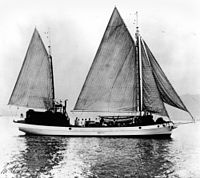iNduna (plural: iziNduna) is a Zulu/Xhosa title meaning advisor, great leader, ambassador, headman or commander of a group of warriors. It can also mean spokesperson or mediator, as the iziNduna often acted as a bridge between the people and the king. The title was reserved for senior officials appointed by the king or chief and was awarded to individuals held in high esteem for their qualities of leadership, bravery or service to the community. The iziNduna would regularly gather for an indaba to discuss important issues.
Amongst the Ndebele the term was also used to collectively refer to a group of elite soldiers operating under a specific induna.
The term has found widespread use in South African English and Afrikaans, and it is a common reference to boss or lead person. In modern times the terms Chairperson and induna are sometimes used interchangeably.
Notable izinDuna in history
- Leander Starr Jameson, a British physician, was awarded the title of iNduna by the Matabele chief Lobengula after he had successfully treated the chief's gout.
- Mbopa was an iNduna serving under Shaka. He was one of the main conspirators in Shaka's assassination by his half-brothers Dingane and Umhlangana.
- Ndlela kaSompisi was a key general to Zulu Kings Shaka and Dingane, and also served as Dingane's inDuna – his chief advisor. Ndlela' repeatedly defied Dingane's request that he assassinate Mpande, half-brother of Shaka and Dingane. By this refusal he preserved the blood line of the Zulu monarchy, as all subsequent Zulu kings were from Mpande's blood line. He was strangled to death for his insubordination.
- Ntshingwayo kaMahole was the second in command (inDuna) of King Cetshwayo's Army. He was the commanding general who defeated the encamped British Army at the Battle of Isandlwana.
- Nathaniel Isaacs, a British adventurer, was awarded the title inDuna Incoola (Principal Chief of Natal) by Shaka and was granted large tracts of land.
- Tinos Rusere, nicknamed the "Rhodesian Induna", was an elected trade union representative of the Rhodesian miners in South Africa. In 1977 he became the trade union inDuna for all Southern African countries.
- Joseph Leabua Jonathan worked as a mine inDuna (foreman) at Brakpan and eventually became the first Prime Minister of Lesotho.
- The Sudwala Caves were named after the Swazi inDuna Sudwala.
- David Livingstone was given authority as a "nduna" in 1852 by Sekeletu, chief of the Kololo, to lead a joint expedition investigating trade routes, starting at Linyanti on the Zambezi river and reaching Luanda on the Atlantic before returning and continuing downstream to Quelimane on the Indian Ocean.
Induna used as name
The word Induna is regularly used as a name to indicate something large (the big one) or important:
- Ntabazinduna (Mountain of the Chiefs) is the name of a hill north of Bulawayo, Zimbabwe. The name stems from the practice of throwing izinDuna who ran afoul of the king down it.
- Induna was the name of a racehorse that won the 1930 South Australian Derby.
- Canada's largest crocodile (14 feet long, weighing more than 1000 pounds) is called Induna. It resides at the Reptilia (zoo) in Vaughan, Ontario.

- In 1899 Winston Churchill (a young war correspondent at the time) escaped from a prison in Pretoria and rode the Induna (a weekly steamer, built in 1891 at Aberdeen, UK) from Delagoa Bay to Durban.
- The SS Induna was the name of a British merchant steamboat (5086BRT) that was sunk during WW2. It was built in 1925 by A. Stephen & Sons Ltd. of Glasgow and torpedoed by the German U-boat Friedrich-Karl Marks (U-376) en route from Reykjavík to Murmansk. Of the 66 people on board, 28 survived and were picked up by a Soviet minesweeper.
- The MV Induna Star was an 81-ton Australian steel ketch. It was captured by the Japanese during WW2 and the men aboard were incarcerated. Some of those men later died in the infamous sinking of the prison ship, the Montevideo Maru by a US submarine.
- Canadian designer John William Allen registered Induna Art & Design Inc. in 2004 formalizing the name used since 1984
See also
- Zulu people (ethnic group)
- Xhosa people (ethnic group)
- Languages of South Africa
References
- African spirituality that shapes the concept of Ubuntu Archived 6 June 2011 at the Wayback Machine, by M J S Masango, page 6
- Induna Award
- "About.Com". Archived from the original on 14 March 2008. Retrieved 7 October 2020.
- See Ndebele/Shona Rebel Armies of 1896 by Dennis Bishop for examples
- Post-Colonial Workplace Regimes in the Engineering Industries of South Africa, Swaziland and Zimbabwe Archived 21 September 2007 at the Wayback Machine, by Andries Bezuidenhout
- See Social Assessment of the Amangwane Community Campsite Project, by Priscilla Wendy Grimster Maud for examples.
- Wisnicki, Adrian S.; Ward, Megan (2015). "Livingstone's Life & Expeditions". Livingstone Online. Retrieved 4 March 2022.
- Thabas Induna on the World City Database
- African Adventures Archived 27 September 2007 at the Wayback Machine, by Lord Baden-Powell
- London to Ladysmith via Pretoria Archived 14 March 2008 at the Wayback Machine, by Winston S. Churchill
- "Sydney Heritage Fleet Records and Research Centre". Archived from the original on 30 September 2007. Retrieved 7 August 2007.
- "The Ships List". Archived from the original on 6 April 2010. Retrieved 9 August 2007.
- Allied Ships hit by U-boats
- Through Fire and Ice, by Austin Byrne
- Darkest Hour: The True Story of Lark Force at Rabaul – Australia's Worst Military Disaster of World War II, by Bruce D. Gamble, page 80
- "A Coastwatcher Mission off the coast of Papua". Archived from the original on 8 September 2007. Retrieved 9 August 2007.
- People of the Plaque, by Jim Ridges